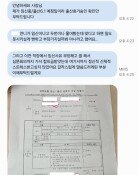Prosecution, NIS outsmarted by progressive lawyers in spy cases
Prosecution, NIS outsmarted by progressive lawyers in spy cases
Posted September. 17, 2014 06:20,
The public security department at the Supreme Public Prosecutors Office held on Monday a meeting of prosecutors in charge of anti-communist affairs from across the nation, and discussed countermeasures in investigation into the "case of civil servant spy at the Seoul Metropolitan government" and the "case of spy directly dispatched by (North Koreas) State Security Department." At the meeting, prosecutors made comments of self-reflection, saying, "While lawyers with the Lawyers for Democratic Society who serve as legal counsels for suspected spies are flying as professionals, prosecution has been too negligent in nurturing human resources for dealing with cases of anti-communist affairs.
Prosecutors in charge of public security also raised issue with laws and institutions that are not practical given the reality in spy cases. In both spy cases, the suspects were able to get "not guilty verdict" from the court by changing their key testimonies after meeting with lawyers with the Lawyers for Democratic Society. It is doubtable whether they would still have been ruled not guilty if prosecutors collected sufficient evidence and conducted investigation by following due process. It seems that while pleading skills by those lawyers have rapidly evolved, investigational capacities of the prosecution and the National Intelligence Service remain unchanged from the past.
They should not be simply complaining that the court is demanding too strict procedures and standards amid a tough investigation environment, in which they are not even allowed to eavesdrop. More than anything, prosecutors should prevent suspects from being ruled not guilty due to procedural problems in prosecutorial probe of spy cases. While ruling Hong, who was suspected as a spy directly dispatched by the North, not guilty, the court said it cannot accept the prosecutorial investigation report as evidence because the prosecutors fail to inform the suspect of four things, including the right to remain silent as a suspect. Prosecutors are in trouble because it continued the outdated practice of informing the suspect of his or her right to defend just as formality, even after the Criminal Procedural Act was revised in 2007.
Improving institutions required for gathering evidence of spying is also urgently necessary. Evidence on spying is often collected overseas including China. However, with the capabilities of the authorities in charge of investigating anti-communist affairs tied up, if the court demands strict evidence like in ordinary criminal cases, it is inevitably very difficult to prove spying charges. If Korea cannot afford to enact a special law such as the Patriotism Act, the anti-terrorism act of the U.S., it needs to consider revising procedures under the Criminal Procedural Act.
Eavesdropping of mobile phones is essential in investigating spies and terrorists. Telephone calls between Korea and overseas are subject to eavesdropping for the sake of national security, but they cannot be submitted to court as evidence. Eavesdropping calls between mobile phones in Korea is outright impossible due to lack of wiretapping equipment. A relevant bill was drafted in January this year, but has yet to be discussed. Korea should not be merely blaming the prosecution and the National Intelligence for their incompetence. If probe into cases of anti-communist affairs is on shaky ground, the country will have loopholes in its national security. The National Assembly should proactively seek enactment of special laws that take into consideration special situation surrounding investigation of spying, including wiretapping of mobile phone calls, protection of witnesses and closed court hearings in trials.
Headline News
- N. Korea launches cyberattacks on S. Korea's defense companies
- Major university hospital professors consider a day off each week
- Italy suffers from fiscal deficits from ‘Super Bonus’ scheme
- Inter Milan secures 20th Serie A title, surpassing AC Milan
- Ruling and opposition prioritize spending amid tax revenue shortfalls







